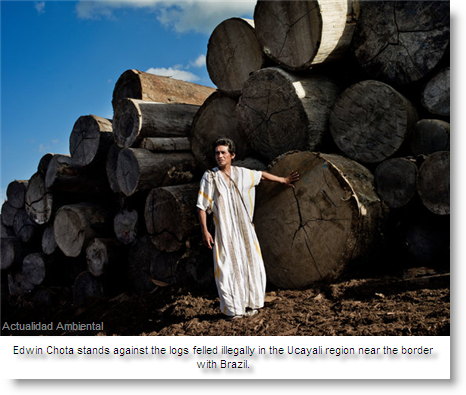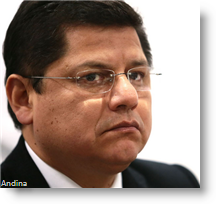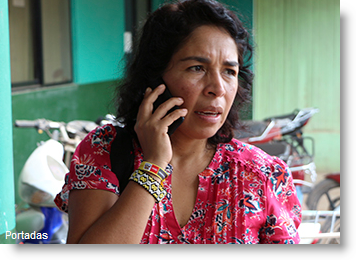 If authorities had acted more quickly, the death of four Ashaninka leaders last week in the eastern Amazon could have been prevented, according to Peru’s Ombudsman, Eduardo Vega.
If authorities had acted more quickly, the death of four Ashaninka leaders last week in the eastern Amazon could have been prevented, according to Peru’s Ombudsman, Eduardo Vega.
Peru’s central government has sent a team to the region to seek protection solutions for the Ashaninka community and for the family members of four Ashaninka indigenous leaders that were gunned down allegedly by illegal loggers, state news agency Andina reported.
But the threats from illegal loggers in the region have been reported on several occasions and talks have been held, yet few concrete actions have been taken.

“We were too slow, “Vega said. “After the meeting in July there were agreements made on a series of issues, such as police protection… The police should have acted and asked for resources. Now they have put in a request to install a police station in the area.”
The Ministry of Culture’s team was sent to the city of Pucallpa, Ucayali region, to meet with the families of Edwin Chota, Leoncio Quincima, Jorge Rios and Francisco Pinedo, the men who were killed about two weeks ago. Chota was the community’s leader and the founder of Aconomac, which groups the Ashaninka communities of the Masisea region.
The Deputy Minister of Interculture, Patricia Balbuena, reported that the men’s wives and six children, as well as two of their community who are interpreters, traveled six days by boat to Pucallpa, reaching the jungle city on Monday, when they were able to advise authorities of the murders. The families also explained the events to members of Aidesep, the country’s largest organization representing indigenous communities.
The families said that Ashaninkas in their remote rainforest area near Peru’s border with Brazil continue to be threatened by illegal loggers following the murder of the men.
The police sent in four helicopters to the area with officials to provide protection and investigate the murders, Andina reported. The area is remote and the five communities are scattered.

Threats against the community, and specifically against the indigenous leaders, were well known locally but also abroad as Edwin Chota had been featured by the New York Times and National Geographic on the threats of illegal logging and loggers to their communities.
“We need to protect the ancestral indigenous territories,” Deputy Minister Balbuena said to Ideeleradio. Balbuena said that the Forestry and Wildlife Service, Serfor, is making progress on land titles, but that there are difficulties.
“What is important to point out is the issue of land titles, one of their principal demands, because that is the guarantee that communities can have to protect their rights,” Balbuena said. “It proves the urgency of making progress with the Forestry Regulations, because there is a problem of overlapping between the forestry concessions and the recognized communities, but the latter have no titles and so the territory they occupy is not respected.”
Corruption in Peru’s regional governments and slow reaction from the central government has allowed illegal logging to flourish in the Amazon. Environmentalists have documented proof of a system in which permits for logging on formal concessions are sold on the black market to allow loggers to extract mahogany and cedar from indigenous lands and other areas. This allows the loggers to pass off the timber as legally extracted wood when they export it to markets in the United States and Europe.





